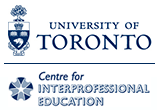Keynote Speaker
Dr. George E. Thibault, MD
President, Josiah Macy Jr. Foundation
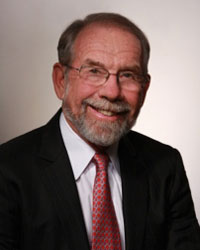
Dr. Thibault previously served as Chief Medical Officer at Brigham and Women’s Hospital and as Chief of Medicine at the Harvard affiliated Brockton/West Roxbury VA Hospital. He was Associate Chief of Medicine and Director of the Internal Medical Residency Program at the Massachusetts General Hospital (MGH). At the MGH he also served as Director of the Medical ICU and the Founding Director of the Medical Practice Evaluation Unit. For nearly four decades at HMS, Dr. Thibault played leadership roles in many aspects of undergraduate and graduate medical education. He played a central role in the New Pathway Curriculum reform and was a leader in the new Integrated Curriculum reform at HMS. He was the Founding Director of the Academy at HMS, which was created to recognize outstanding teachers and to promote innovations in medical education. Throughout his career he has been recognized for his roles in teaching and mentoring medical students, residents, fellows and junior faculty. In addition to his teaching, his research has focused on the evaluation of practices and outcomes of medical intensive care and variations in the use of cardiac technologies. Dr. Thibault is Chairman of the Board of the MGH Institute of Health Professions, Chairman of the Board of the New York Academy of Medicine, and he serves on the Board of the New York Academy of Sciences, the Institute on Medicine as a Profession, and the Lebanese American University. He serves on the President’s White House Fellows Commission and for twelve years he chaired the Special Medical Advisory Group for the Department of Veteran’s Affairs. He is past President of the Harvard Medical Alumni Association and Past Chair of Alumni Relations at HMS. He is a member of the Institute of Medicine of the National Academy of Sciences. Dr. Thibault graduated summa cum laude from Georgetown University in 1965 and magna cum laude from Harvard Medical School in 1969. He completed his internship and residency in Medicine and fellowship in Cardiology at Massachusetts General Hospital (MGH). He also trained in Cardiology at the National Heart and Lung Institute in Bethesda and at Guys Hospital in London, and served as Chief Resident in Medicine at MGH. Dr. Thibault has been the recipient of numerous awards and honors from Georgetown (Ryan Prize in Philosophy, Alumni Prize, and Cohongaroton Speaker) and Harvard (Alpha Omega Alpha, Henry Asbury Christian Award and Society of Fellows). He has been a visiting Scholar both at the Institute of Medicine and Harvard’s Kennedy School of Government and a Visiting Professor of Medicine at numerous medical schools in the U.S. and abroad.
Special Guests
Dr. Robert S. Bell, MDCM, MSc, FRCSC, FACS
Deputy Minister, Ministry of Health and Long-Term Care

Dr. Robert Bell was appointed Deputy Minister of Health and Long-Term Care, effective June 2, 2014. Prior to this role, he served as President and Chief Executive Officer of University Health Network for nine years. He was previously the Chief Operating Officer at Princess Margaret Hospital and Chair of both Cancer Care Ontario’s Clinical Council and the Cancer Quality Council of Ontario. Dr. Bell received his Doctor of Medicine from McGill University and a Master of Science from the University of Toronto. He also completed a Fellowship in Orthopaedic Oncology at Massachusetts General Hospital and Harvard University. Dr. Bell is a Fellow of the Royal College of Physicians and Surgeons of Canada, the American College of Surgeons and an Honourary Fellow of the Royal College of Surgeons of Edinburgh. An internationally recognized orthopedic surgeon, health care executive, clinician-scientist, and educator, Dr. Bell brings more than 30 years of health care experience to his current role.
Ms. Suzanne McGurn, BScN, MPA
Assistant Deputy Minister, Ministry of Health and Long-Term Care
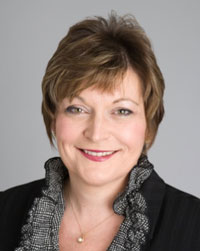
Suzanne McGurn has worked in the health care environment for over 25 years. Suzanne holds both a Bachelor of Nursing Sciences and a Masters of Public Administration. The first 15 years of her career were spent in a variety of clinical front-line service provision roles where she had the opportunity to see the difference that health care providers make every day as they touch the lives of patients and their families, often when at their most vulnerable. Despite her love for nursing, in 2000, Suzanne was given an opportunity to explore public policy when offered a position with the Ontario government. During her over 10 years with the Ministry of Health and Long-Term Care, she has held a number of positions and in the summer of 2012 was confirmed as the Assistant Deputy Minister for the Health Human Resources Strategy Division. In this position she leads HealthForceOntario, Ontario’s health human resource strategy. Additionally, as of May 7, 2014 she has taken on the Interim Assistant Deputy Minister and Executive Officer of the Ontario Public Drug Programs Division.
Lead Sponsor
Sarita Verma, LLB, MD, CCFP
Professor, Department of Family & Community Medicine, University of Toronto
Deputy Dean, Faculty of Medicine
Associate Vice Provost, Health Professions Education
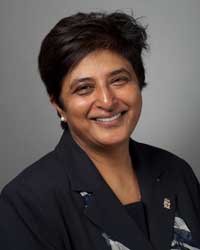
Dr. Sarita Verma is a Professor in the Department of Family and Community Medicine, Deputy Dean of the Faculty of Medicine and Associate Vice Provost Health Professions Education at the University of Toronto. She is a family physician who originally trained as a lawyer at the University of Ottawa (1981) and later completed her medical degree at McMaster University (1991). She has been a Diplomat in Canada’s Foreign Service and worked with UNHCR in Sudan and Ethiopia for several years. Dr. Verma is the 2006 recipient of the Donald Richards Wilson Award in medical education from the Royal College of Physicians and Surgeons of Canada and the 2009 co-recipient of the May Cohen Gender Equity Award from the Association of Faculties of Medicine in Canada. Along with colleagues at McGill University, University of British Columbia and the University of Toronto, she was one of the lead consultants for the Future of Medical Education in Canada Postgraduate project. At present she is the Co-lead for the Canadian Interprofessional Health Leadership Collaborative (CIHLC) at the Institute of Medicine’s Global Forum on Innovation in Health Professions Education.
All biographies are listed in the order they appear on the agenda
Moderators/ Panelists/ Speed Debaters
Mandy Lowe, MSc, OT Reg. (Ont.)
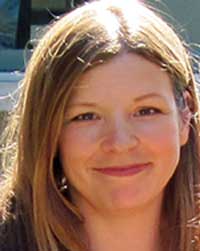
Mandy Lowe is the Director of Education and Professional Development at the University Health Network and the Associate Director for the Centre for Interprofessional Education at the University of Toronto (UT). Mandy holds a status appointment as Assistant Professor in the Department of Occupational Science and Occupational Therapy, Faculty of Medicine, UT and has been recognized for excellence in teaching by colleagues and students. She is strongly committed to interprofessional education, collaboration and knowledge translation and has been involved in all phases of IPE including undergraduate, graduate and post-graduate education. Mandy is also an investigator in a range of research projects that address learning from an interprofessional perspective.
Patient Speaker – Chrystal Gomes
Chrystal Gomes is an Administrative Assistant-turned-Stand-Up Comedienne, a Patient Advocate, and a loving Caregiver to her darling Mother who is living with Alzheimer’s Disease. Humour and laughter have been an ever-constant lifeline providing strength, healing, and a positive shift in perspective in Chrystal’s battles with depression, Multiple Sclerosis, ongoing chronic pain, and other ailments. She has been featured in numerous television and radio shows, and has been written about in various publications. Chrystal has performed stand-up comedy and delivered inspirational presentations in Florida, New York, Tennessee, British Columbia, Nova Scotia, Manitoba, and throughout Ontario in her bid to spread the feeling of well-being that humour and laughter create.
Patient Speaker – Christine Papoushek
Christine Papoushek has a Doctor of Pharmacy degree from the University of Michigan and has 15 years of experience working in primary care settings with family physicians and other health care professionals. She has been an active faculty member at the Faculty of Pharmacy and Faculty of Medicine at the University of Toronto. Christine has participated and led various committees and task forces integral to the implementation of structures and processes required for successful interprofessional collaboration within primary care models. She has particular expertise in optimizing interprofessional care processes that enhance drug therapy and management of chronic medical illnesses,and has led projects on patient empowerment and education. In April 2010, Christine suffered a stroke. In the last four years, she has gained personal insight on what stroke healing entails, the role patients and their families must have in advocating for their own care and the imperative for health care professionals to work collaboratively to provide quality care. Christine has made a complete recovery and has returned to her academic and clinical practice roles. Christine has shared her unique perspectives speaking as a healthcare professional and educator, mother and wife, weaving her personal experiences as a stroke survivor and family advocate and reminding health care professionals about the importance of interprofessional patient-centred care and the need to strive for balance in our ever busy and hectic lives.
Golda Milo-Manson, MHSc, MD, FRCPC

Dr. Golda Milo-Manson received her Medical Degree at McMaster University, Hamilton, Ontario in 1989. She received her Master of Health Science from McMaster University in 1986. Her clinical focus is in children with neurodevelopmental disabilities and children with sleep challenges. She is the Chair of the Royal College of Physicians & Surgeons of Canada Specialty Committee in Developmental Pediatrics. She was the previous Program Director for the Developmental Paediatric Residency training program, University of Toronto. Dr. Milo-Manson had a leadership role in improving access and patient care process improvements at Holland Bloorview.
Brian Hodges, MD, PhD, FRCPC
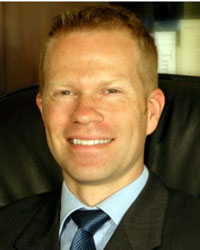
Dr. Hodges’ research focuses on using Foucauldian-inspired discourse analysis to study the nature and construction of various aspects of health professional education and practice: competence, assessment, professionalism, and globalization. He is currently engaged in two projects, each funded for three years by Canada’s Social Science and Humanities Research Council. The first, with colleagues at McGill University, is a study of the discourses of excellence, diversity and equity in Canadian medical schools admissions processes. The second with colleagues at McGill, Sherbrooke and University of British Columbia is a study of concepts of validity in assessment. He is an active teacher and speaker, both in Toronto and internationally, on qualitative methods, discourse analysis and various dimensions of competence and assessment. He leads the AMS Phoenix Project, a 5-year initiative to rebalance compassion with the technical aspects of healthcare. Brian D. Hodges is Professor in the Faculty of Medicine and Faculty of Education (OISE/UT) at the University of Toronto, the Richard and Elizabeth Currie Chair in Health Professions Education Research at the Wilson Centre for Research in Education and Vice President Education at the University Health Network (Toronto General, Toronto Western Princess Margaret and Toronto Rehab Hospitals). He leads the AMS Phoenix Project: A Call to Caring, an initiative to rebalance the technical and compassionate dimensions of healthcare.
Kathryn Parker, MEd, PhD

Dr. Kathryn Parker received her PhD at the Ontario Institute for Studies in Education at the University of Toronto in 2006. Her doctoral work focused on the development of an enhanced model for program evaluation which examines the value of measuring cognitive “readiness” when determining the merit of a continuing education program. She received her Master of Arts in Measurement and Evaluation from OISE in 1999. Kathryn has presented her work at various national and international conferences. She has presented posters illustrating her research on the stages of change model and the use of this model in program evaluation. She has also conducted numerous workshops on statistical techniques, research methodologies, needs assessment in continuing education, outcome measurement, measuring readiness to change and program accountability. Kathryn began working in the area of theory-based program evaluation in 2002. She has worked with numerous academic groups to facilitate and direct program evaluation efforts. These groups include the Department of Family and Community Medicine at the University of Toronto, Centennial College, George Brown College, and the Michener Institute where she served for seven years as the Senior Director, Scholarship, Assessment and Evaluation. She has a keen interest in the construction and measurement of program performance and outcome indicators as well as evolving the practice of theory-based program evaluations. Her primary scholarly interests include the development and evaluation of innovative methods of program evaluation and change leadership in healthcare organizations. In addition to her scholarly work, Kathryn currently serves as the Director of the Teaching and Learning Institute and the Simulation Lead at Holland Bloorview Kids Rehabilitation Hospital.
Jerry Maniate, MD, MEd, FRCPC

Dr. Maniate is a community-based clinician educator who is currently working at St. Joseph’s Health Centre (SJHC) in the Section of Haematology/Oncology, Department of Medicine and is an Assistant Professor in the Faculty of Medicine at the University of Toronto. In August 2011 he was appointed as the Director of Medical Education for SJHC. In October 2012, Dr. Maniate was appointed as the inaugural Chief of the Department of Medical Education & Scholarship. Dr. Maniate is also an Academic Educator through the Centre for Faculty Development (CFD) and an Educator Researcher through the Wilson Centre for Research in Education. Dr. Maniate has a strong history in leadership and service in health professional education for which he has been recognized by being awarded with a CAIR Honorary Life Membership and also the 2008 Canadian Medical Association Young Leaders Award – Resident. Dr. Maniate was also recognized by SJHC as a recipient of the 2011 Legend Award. At the current time, Dr. Maniate is actively involved with a number of Royal College of Physicians and Surgeons of Canada (RCPSC) activities. These include being a member of the International Conference on Residency Education (ICRE) Planning Advisory Board, the International Medical Education Leaders Forum (IMELF) Steering Committee, the CanMEDS 2015 Collaborator Expert Working Group and representing the Royal College on the recently formed College of Family Physicians of Canada (CFPC) Patient Medical Home Steering Committee exploring new models of patient care that incorporate intraprofessional and interprofessional collaboration. Dr. Maniate is also a member of the Future of Medical Education in Canada-Postgraduate (FMEC-PG) Strategic Implementation Group. Locally, he is a member of the Toronto Academic Health Sciences Network Education (TAHSNe) Committee, the University of Toronto Division of Hematology Residency-Training Program Committee & Research Committee, the CFD Executive Committee, and a member of the Wilson Centre Fellowship Program Committee in the Faculty of Medicine. He recently completed a two-year term as the inaugural Chair of the Evaluation and Assessment Committee for the Physician Assistant Education Program. Internationally, Dr. Maniate is the RCPSC Liaison to Serbia and a member of the Royal Serbian Medical Board in Canada (RSMBC) and Serbian Diaspora Medical Conference Organization Committee, highlighting his educational initiatives in this country. He has been involved with external consultations in Oman and Saudi Arabia as well a CanMEDS Faculty Development sessions in Saudi Arabia and Kuwait. In reflection of his international educational activities, Dr. Maniate is a member of the RCPSC CanMEDS Academy of Medical Educators.
Patricia Houston, MD, MEd, FRCPC

Dr. Patricia Houston graduated in medicine from the University of Toronto in 1978 and completed her anesthesiology residency in Toronto in 1983. She is an anesthesiologist and Vice-President Education at St. Michael’s Hospital, Toronto. She oversees the Education Portfolio which encompasses activities for students across all health professions, continuing education for hospital employees and physicians, the Patient and Family Education Program, the Center for Faculty Development, the Allan Waters Family Simulation Center, the Health Sciences Library, eLearning, and Telemedicine. She co-chairs the Toronto Academic Health Sciences Network Education Committee. Dr. Houston is Professor and past Vice-Chair Education in the Department of Anesthesia at the University of Toronto. She held the position of Acting Vice Dean, Undergraduate Medical Education for a six-month period in 2012-13 and is the past President of the Canadian Anesthesiologists Society. She holds an M.D. and Masters in Education from the University of Toronto and is a Fellow of the Royal College of Physicians and Surgeons of Canada.
Ann Russell, PhD
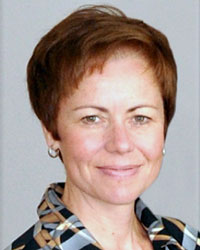
At Michener, Dr. Russell is responsible for the Centre for Learning and Innovation, the Applied Educational Research Department and the Learning Resource Centre/Library. This tripartite responsibility enables the fulsome integration of services to support evidence-informed curriculum/program development and improvement and innovation in the applied health sciences. Dr. Russell’s background as a cognitive scientist positions her well for her current role at Michener. Her doctoral research focused on knowledge creation and innovation in applied health care practice and her extensive clinical background in neuropsychology and cognitive-behavioral therapy spans the continuum of care, from primary care, to rehabilitation to complex continuing care. Building on her previous clinical experience in the assessment and treatment of cognition and emotion, her current work and research at Michener focuses on distributed cognition, interprofessional education and innovation in health care practice and education.
Joy Richards, RN, PhD
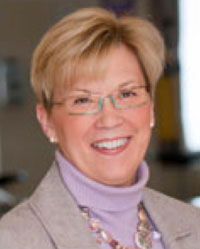 Dr. Richards is the Vice-President Health Professions and Chief Nursing Executive at University Health Network in Toronto, an academic health science centre comprised of four hospitals – Toronto General Hospital, The Princess Margaret Hospital, Toronto Western Hospital, and Toronto Rehab Institute. Joy is a Past-President of the Academy of Canadian Executive Nurses (ACEN) and holds clinical appointments at the University of Toronto, Faculty of Nursing, York University Faculty of Nursing, and Humber College. Her previous experience includes progressive senior nursing management positions in the acute care and long-term care sectors; nursing education and nursing informatics and has presented her work, both nationally and internationally. She has also published many articles and book chapters related to her professional work. Dr. Richards graduated from the University of Toronto with a Bachelor of Science in Nursing in 1981, and a Master of Nursing in 2000. She then went on to complete a Master of Arts in Human and Organizational Systems from Fielding Graduate University in Santa Barbara California in spring of 2005. Joy is also a graduate of the Queen’s University Executive Program and is a Johnson & Johnson Wharton Fellow, University of Pennsylvania. She completed her PhD studies in 2008, in Human and Organizational Development at Fielding Graduate University: Her dissertation focused on exploring and understanding the development and practice of feminine courage in leadership. She has also received numerous awards, including the 2007 Sigma Theta Tau Award for Excellence in Nursing Administration, the 2010 Health Achieve Margret Comack Award of Excellence in Nursing Leadership, and 2013 Award of Distinction for her nursing leadership contributions from the Bloomberg Faculty of Nursing, University of Toronto. Joy’s particular interests, focus and passion are in the area of clinical leadership, quality of work life environments and the development of client-centred practice settings, with a special focus on excellence in geriatric care.
Dr. Richards is the Vice-President Health Professions and Chief Nursing Executive at University Health Network in Toronto, an academic health science centre comprised of four hospitals – Toronto General Hospital, The Princess Margaret Hospital, Toronto Western Hospital, and Toronto Rehab Institute. Joy is a Past-President of the Academy of Canadian Executive Nurses (ACEN) and holds clinical appointments at the University of Toronto, Faculty of Nursing, York University Faculty of Nursing, and Humber College. Her previous experience includes progressive senior nursing management positions in the acute care and long-term care sectors; nursing education and nursing informatics and has presented her work, both nationally and internationally. She has also published many articles and book chapters related to her professional work. Dr. Richards graduated from the University of Toronto with a Bachelor of Science in Nursing in 1981, and a Master of Nursing in 2000. She then went on to complete a Master of Arts in Human and Organizational Systems from Fielding Graduate University in Santa Barbara California in spring of 2005. Joy is also a graduate of the Queen’s University Executive Program and is a Johnson & Johnson Wharton Fellow, University of Pennsylvania. She completed her PhD studies in 2008, in Human and Organizational Development at Fielding Graduate University: Her dissertation focused on exploring and understanding the development and practice of feminine courage in leadership. She has also received numerous awards, including the 2007 Sigma Theta Tau Award for Excellence in Nursing Administration, the 2010 Health Achieve Margret Comack Award of Excellence in Nursing Leadership, and 2013 Award of Distinction for her nursing leadership contributions from the Bloomberg Faculty of Nursing, University of Toronto. Joy’s particular interests, focus and passion are in the area of clinical leadership, quality of work life environments and the development of client-centred practice settings, with a special focus on excellence in geriatric care.
Glen Bandiera, MD, MEd, FRCPC
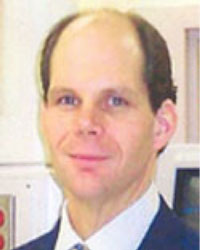
Dr. Bandiera has undergraduate degrees in Engineering (Waterloo) and Medicine (McMaster) and a Graduate degree in Education (OISE/UT). He undertook an Emergency Medicine Residency with subspecialty training in Trauma Resuscitation at McMaster University, followed by ten years as a staff emergency physician and Trauma Team Leader at St. Michael’s Hospital. Glen is currently Chief of Emergency Medicine at St. Michael’s Hospital and Associate Dean, PostGraduate Medical Education at the University of Toronto. He is an associate professor at the University of Toronto, and has published in the areas of trauma/injury prevention and medical education. Dr. Bandiera is currently the Chair of the Accreditation Committee of the Royal College of Physicians and Surgeons of Canada, responsible for setting and monitoring the standards for almost 800 residency programs in 67 specialties across Canada. He is Chair-elect of the Royal College Specialty Committee for Emergency Medicine and Past President of the Canadian Association for Medical Education.
Maria Tassone, MSc, BScPT

Maria Tassone is the inaugural Director of the Centre for Interprofessional Education, a strategic partnership between the University of Toronto and the University Health Network (UHN) in Toronto, Canada. She is also the Senior Director, Interprofessional Education & Care at UHN. Maria is currently the co-lead of the Canadian Interprofessional Health Leadership Collaborative, one of four international innovation collaboratives recently awarded by the Institute of Medicine in Washington. Maria holds a Bachelor of Science in Physical Therapy from McGill University, a Master of Science from the University of Western Ontario, and she is an Assistant Professor in the Department of Physical Therapy, Faculty of Medicine, University of Toronto. Her research and scholarly interests focus on leadership, professional development and knowledge translation across the health professions.


